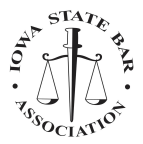Nursing home abuse is a serious issue in the U.S., with nursing home neglect among the most prevalent forms of abuse. Nursing home neglect occurs when someone in the care of a nursing home facility does not receive the proper level of care putting then at risk for significant physical and psychological damage. Knowing the signs of neglect can help you to protect a family member from harm.
Among the red flags that may indicate nursing home neglect is poor personal hygiene. Residents of nursing homes often require help with basic personal hygiene such as bathing, changing clothes, grooming and routine dental care. It is the job of nurses or staff to provide assistance with these tasks to promote health and well-being. A disheveled, uncleanly appearance may be the first clue that a loved one is not receiving the care and attention they need and deserve in a nursing home setting.
Nursing homes must provide a safe, sanitary and comfortable environment for residents and meet state safety requirements for safety and security. Failing to clean or maintain a nursing home may expose residents to a number of harmful pathogens or other injuries due to disrepair.
Malnutrition and dehydration affects millions of nursing home residents across the country and most typically results when a nursing home facility has inadequate staffing and oversight to ensure that residents are eating and consuming fluids as necessary to maintain optimum health. Rapid weight loss and dry skin can be signs of malnutrition or dehydration, which pose a significant threat to elderly residents if left unchecked.
A good nursing home will make sure that residents remain as active as possible, helping them move around and exercise to build muscle tone and strength, improve circulation, among other benefits. A person left to lay in bed for long periods of time risk losing their ability to remain mobile and puts them at risk for health issues such as bedsores or infections. Mobility is key in preventing an avalanche of health issues that may be hard to address once they get started.
Perhaps the most glaring evidence of neglect is unexplained injuries indicating that your loved one is not receiving the support and assistance that they need. Bruises, fractures or head injuries from falls can result when a nursing home is left to do things on their own.
While neglect can manifest itself physically, neglect in a nursing home can also cause psychological issues such as anger, resentment, or depression that can lead to a resident neglect themselves. If a loved one grows distant, uncommunicative or exhibits other emotional changes it is important to take it seriously and intervene on their behalf. Silent suffering can take a physical toll on residents who lack the support they need.
When You See Signs of Nursing Home Neglect
Contact a Nursing Home Neglect Attorney Immediately
Knowing the warning signs of nursing home neglect and abuse can help you protect your loved one. If you or a family member has been injured in a nursing home facility due to the neglect of nursing home staff, contact Des Moines nursing home abuse and neglect lawyer Marc A. Humphrey for help at 515-331-3510.






